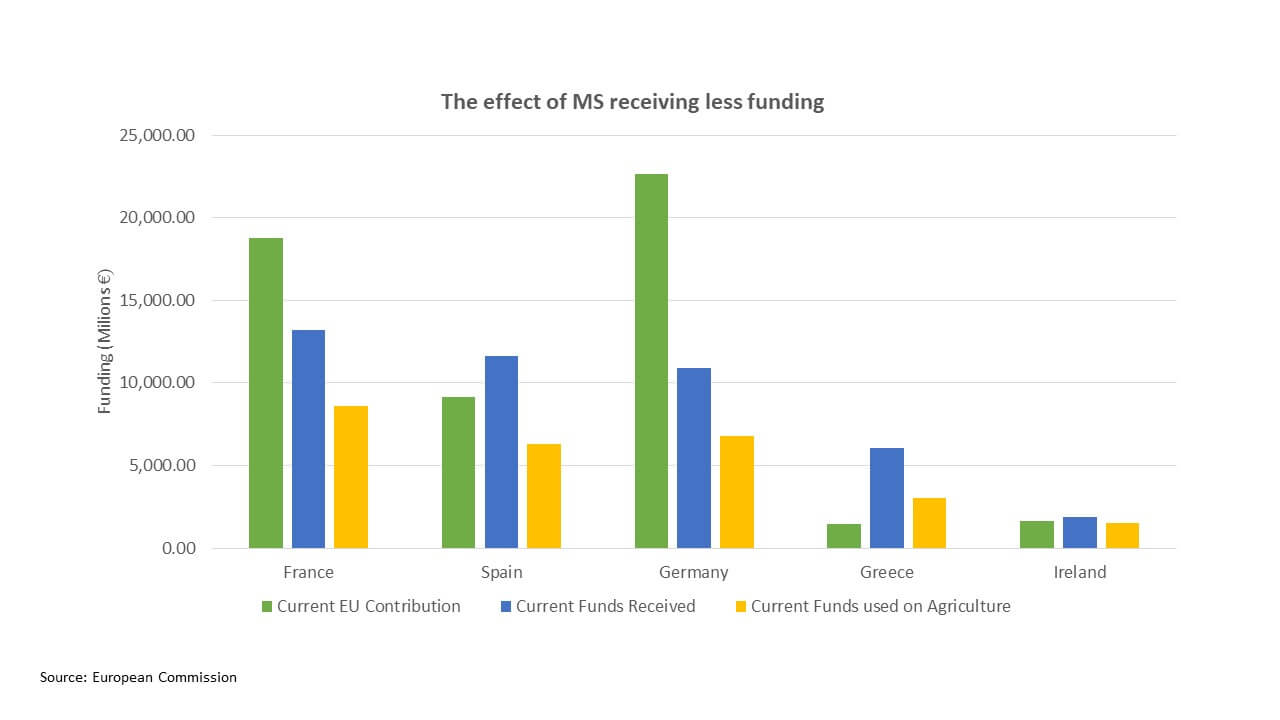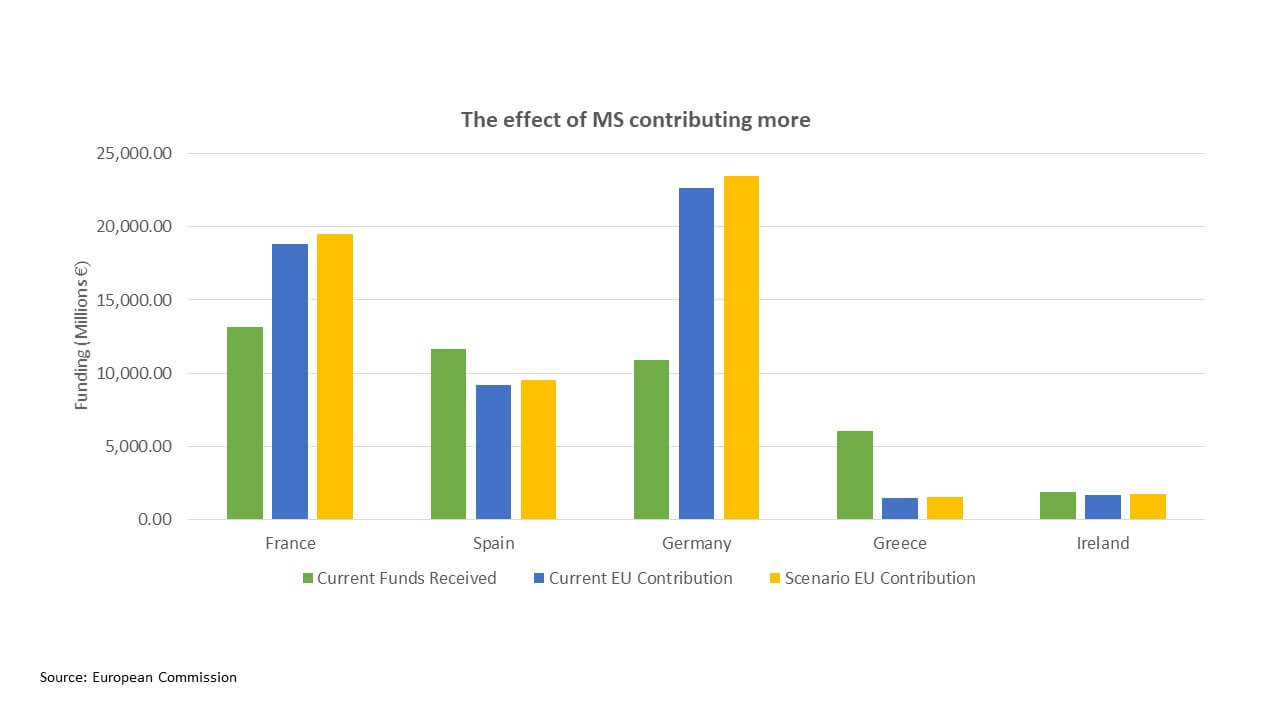The effect of Brexit on the EU agricultural budget
Wednesday, 19 December 2018
AHDB have been working behind the scenes since the referendum results to analyse the impact Brexit will have on UK agriculture. However, Brexit will also affect the remaining EU 27.
In this article, we look at some of the budgetary issues the EU will be considering, with the loss of one of its largest contributors. How will the EU fill the Brexit gap? With the budget for farmers and growers divided into direct payments and rural development payments, how will this impact them?
The current EU budget
The European Commission’s figures suggest that the EU budget averaged at circa. €143,270 million (2014-2017). This was spread across six different uses. The biggest allocation was for agriculture.
Of this, the UK contributed circa. €13,310[1] , which is nearly 9% of the total budget. Without their contribution, the EU budget could shrink to €129,960 million. This means either MS will receive less from the EU or the EU will look to raise funds to keep the budget the same, once any money from a potential UK/EU withdrawal deal expires. Some new possible ways of financing the budget have been talked about, including gaining revenue from companies’ taxable profits and collecting tariff revenue on imports from the UK after Brexit. However, MS could also be asked to increase their contributions to raise funds to the initial budget level. It is important to note that the figures mentioned below are calculated across all MS equally, rather than being proportionate to the amount that they have contributed. The article will look at the effects of this on France, Spain, Germany, Greece and Ireland.
Scenario 1 – MS receiving less
As mentioned above, if the EU cannot raise funds to keep the budget the same as currently, the MS could receive less spending. As the UK contributes €13,310 million, this amount divided equally between all MS means that each MS budget will reduce by 3.7%.

In 2016, France and Germany contributed more than they took out of the EU. As 63-65% of EU money received by France and Germany goes towards agriculture, they would be impacted greatly. France’s spending would reduce by €488 million and Germany’s would reduce by €402 million. In this scenario, Germany’s spending would reduce to just over a third of the amount that they contribute to the budget. This means that these countries would receive even less for their large contribution.
On the other hand, Spain, Greece and Ireland all currently receive more than they contribute to the EU. Spain (-€430 million) and Greece (-€225 million) can also expect to be impacted in this scenario, as they spend approximately half of their funding on agriculture. Although Ireland’s funding reduction (-€69 million) appears slight when compared to the aforementioned countries, the effects are still likely to be hard-hitting, as they have the highest reliance on EU funding for agriculture (80% according to the Eurostat and the European Commission).
Scenario 2 – MS contributing more
As mentioned above, a possible scenario is that the EU cannot raise the money from external sources to keep the EU budget the same so could ask MS to increase their contributions. The UK’s contribution divided equally between all MS means each MS would have to increase their contribution by 3.7%. Countries may struggle with this, as they may have to withdraw money from other useful schemes in order to fund the revised EU budget. Whether countries can afford this will depend on their economy at the time.

In this scenario, the leading contributors would have to spend a considerable amount more on the budget; (France €695 million more, Spain €339 million more and Germany €837 million more). The smaller contributors Greece and Ireland would also see an increase (€54 million and €61 million) in their contribution to the budget. This could impact all of the MS industries, finances and ultimately economies.
Conclusion
Whatever happens, whether it be one of these scenarios or a mixture, areas of EU spending are likely to be closely scrutinised. Because of this, spending on agricultural support could be squeezed, which will impact countries and inevitably farmers with a high reliance on funding. The European Commission is already proposing that funding for the Common Agricultural Policy and Cohesion Policy is reduced by 5%.
Change is inevitable, but it is important to understand that Brexit will affect other countries as well as the UK. As explored in these scenarios, Brexit has the power to affect economies, agriculture and policy in other countries as well as the UK. At present, no one can predict what will happen post-Brexit, but contingency planning is a step in the right direction to prepare.
[1] Including rebate.

